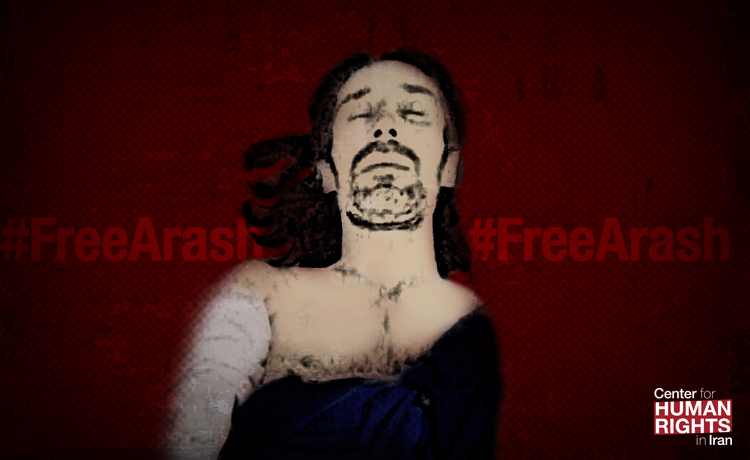Unable to Move His Arm, Arash Sadeghi Denied Hospitalization for Infected Biopsy Wound

FEBRUARY
12, 2019
“What’s certain is that he needs to be
urgently hospitalized”
Arash Sadeghi, a political prisoner in
Iran, has lost the ability to move his right arm due to an infection on his
shoulder that has been left untreated in Rajaee Shahr Prison, the Center for Human Rights
in Iran (CHRI) has learned.
“After the biopsy, the assigned
doctor prescribed monthly hospital visits to check his tumor and stop its
growth,” said the source who spoke on the condition of anonymity for security
reasons.
“But the head of Rajaee Shahr
Prison always comes up with some excuse to prevent Sadeghi’s transfer to the
hospital.
“He can’t control the movement
of his arm and the infection on the spot of his surgery is getting worse every
day,” added the source. “The doctor in the prison’s clinic says that he should
be dispatched to a hospital to get the tumor examined and if it doesn’t stop
growing, he would need chemotherapy, which would require long-term
hospitalization.”
The civil rights activist’s
father, Hossein Sadeghi, is scheduled to visit his son in prison on February
13.
“Arash’s condition is getting
worse every day,” he told CHRI on February 10. “What’s certain is that he needs
to be urgently hospitalized.”
Sadeghi, who has been serving a
15-year prison sentence for his peaceful political activities since 2016,
underwent a biopsy in June 2018 and was
diagnosed with Chondrosarcoma, a rare form of cancer that
causes bone tumors, according to a source with detailed knowledge of his case.
Sadeghi’s last visit to a hospital outside the
prison with specialized medical practitioners was in September 2018 despite
repeatedly requesting to go back for further treatment.
Political prisoners in Iran, including elderly inmates, are singled out for harsh treatment, which often includes denial of medical care. The threat of withheld medical care has also been used as
an intimidation tool against prisoners who
have challenged the authorities or filed complaints.
Furlough, temporary leave typically
granted to prisoners in Iran for a variety of familial, holiday, and medical
reasons, is routinely denied to political prisoners as a form of additional
punishment.
The source told CHRI that after
Sadeghi refused to be transported to the hospital in a prison uniform, which he
is not normally required to wear, he was told by prison authorities that he
wouldn’t be allowed to go to the hospital at all.
The authorities also told him
he was being punished for allegedly disrespecting guards who had accompanied
him during the last hospital visit.
Iran’s State Prisons
Organization and the judiciary are responsible for ensuring the safety and
well-being of all detainees held in state custody. The State Prison Procedures
state in Article 120 that “The head of the prison’s infirmary is required to …
[ensure] that they receive adequate care from doctors and nurses, [and] he must
supervise the patients’ proper diet and recovery completely and continually.”
According to the UN’s Standard
Minimum Rules for the Treatment of Prisoners, which all UN Member States are
expected to abide by, “…Sick prisoners who require specialist treatment shall
be transferred to specialized institutions or to civil hospitals.”
No comments:
Post a Comment